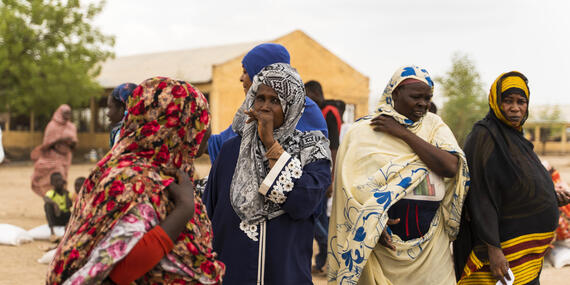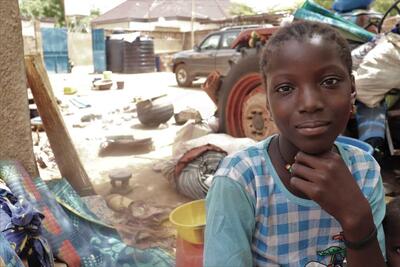Today's top news: Occupied Palestinian Territory, Sudan

Occupied Palestinian Territory
OCHA reported that over four consecutive days – from Saturday through Tuesday – 62 trucks travelled through the Rafah crossing with Egypt into Gaza, carrying water, food and medical supplies.
Most of this aid has already reached hospitals, ambulances and internally displaced people. However, the daily average of trucks allowed into Gaza prior to the hostilities was about 500.
Fuel, which is desperately needed to run back-up generators, remains banned by the Israeli authorities. As a result, the UN Relief and Works Agency (UNRWA) has almost exhausted its fuel reserves and began to significantly reduce its operations.
An estimated 1.4 million people in Gaza are internally displaced, with some 629,000 sheltering in 150 UNRWA-designated emergency shelters. Overcrowding is a growing concern, as the average number of displaced people per shelter has now reached 2.7 times their designated capacity.
The water supply through the network in areas south of Wadi Gaza has temporarily improved. This happened after UNRWA and UNICEF managed to deliver small quantities of fuel they had retrieved from their existing reserves to key facilities. However, the available fuel in these facilities will be exhausted, likely quite soon, and the supply of piped water is expected to cease again.
In a statement issued earlier today, Lynn Hastings, the Humanitarian Coordinator for the Occupied Palestinian Territory, said the Israeli Defense Forces continue to notify people in Gaza City that those who stay in their homes will put themselves in danger.
She stressed that the conduct of armed conflict, anywhere, is governed by international humanitarian law. This means that civilians must be protected and have the essentials to survive, wherever they are and whether they choose to move or stay.
Ms. Hastings added that it also means that hostages – all hostages – must be released, immediately and unconditionally.
Sudan
The Humanitarian Coordinator in Sudan, Clementine Nkweta-Salami, expressed deep concern over continued reports of attacks against civilian infrastructure. In a statement, she again implored the parties to the conflict to honour their obligations under international humanitarian law.
Ms. Nkweta-Salami warned that the fighting is causing suffering on an unprecedented scale – and not even hospital wards full of sick and wounded children are safe.
Since the start of the war in April, the World Health Organization has verified 58 attacks on health care. This includes deadly shelling that struck one of the last functioning hospitals in Omdurman – in Khartoum State – on 9 October. More than 70 per cent of health facilities in conflict areas are now out of service.
On Saturday 21 October, the water supply in Omdurman was suspended after the Al Manara treatment centre came under fire. This kind of disruption is extremely worrying, given the ongoing cholera outbreak in Khartoum State and other parts of the country.
The UN and humanitarian partners are scaling up the response to the outbreak, including surveillance efforts.
More than 1,600 suspected cholera cases – including 67 related deaths – have been reported in Sudan. Meanwhile, the number of people at risk of acute watery diarrhoea is estimated at more than 3 million through the end of the year.












